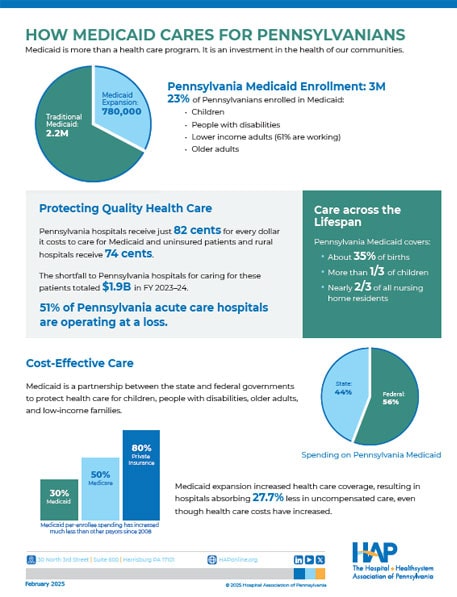How Medicaid Cares for Pennsylvanians
Medicaid is a partnership between the state and federal governments to protect health care for children, people with disabilities, older adults, and low-income families. But Medicaid is more than a health care program. It is an investment in the health of our communities.
Download HAP's infographic to learn more about how the Medicaid program supports a healthier Pennsylvania.
Click to download HAP's infographic

HAP Contacts
For more information, contact Jolene Calla, Esq., vice president, finance & legal affairs. Media inquiries should be directed to Kim Yakowski, manager, media relations.